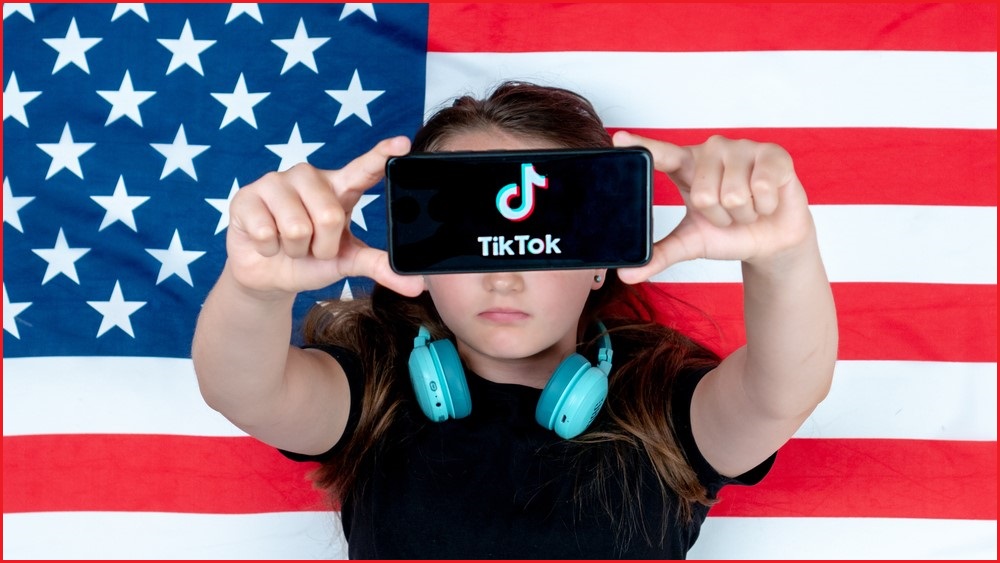TikTok could be banned in the US as early as January next year after a bill aiming to force its China-based parent company to divest the popular social media app was signed into law.
Soon after the US Senate passed the bill that will ban TikTok in the US unless ByteDance sells its stake in it, the Chinese company said that it has no plans to pursue such a sale and will instead be challenging the legislation legally on First Amendment grounds.
US lawmakers have long been concerned over the prospect of ByteDance being forced to hand over the data of its US users to the Chinese government and intelligence agencies under the country’s national security laws.
Previous efforts to force ByteDance to divest its stake in TikTok have led to plans to silo US data to prevent access in China.
But the legislation ordering ByteDance to sell its TikTok stake by January 2025 to a country that the US does not consider a “foreign adversary” was passed by the House last month.
Biden is able to grant a further three month delay to the TikTok ban if there has been progress towards the sale.
If this time period comes to an end and ByteDance has not divested TikTok, it will be illegal to distribute the app in the US.
Facing an uphill battle in the House, the bill was fast-tracked and included in a foreign aid package for Ukraine.
It was passed last week with 79-18 in favour of it, and US President Joe Biden signed it into law soon after.
Social media power
Senate Commerce Committee chair Maria Cantwell said the bill isn’t about targeting individual companies.
“Congress is not acting to punish ByteDance, TikTok or any other individual company,” Cantwell said.
“Congress is acting to prevent foreign adversaries from conducting espionage, surveillance, maligned operations, harming vulnerable Americans, our servicemen and women, and our US government personnel.”
The main concern leading to the bill being needed is the potential for the Chinese government to exert influence through TikTok, Senate Intelligence Committee chair Mark Warner said.
“The truth is, these Chinese companies at the end of the day, they don’t owe their obligation to their customers, or their shareholders, but they owe it to the PRC government,” Warner said.
“In the context of social media platforms used by nearly half of Americans, it’s not hard to imagine how a platform that facilitates so much commerce, political discourse and social debate could be covertly manipulated to serve the goals of an authoritarian regime, one with a long track record of censorship, transnational repression and promotion of disinformation.”
We won’t sell: ByteDance
Soon after the bill’s passage, The Information reported that ByteDance was “internally exploring scenarios for selling a majority stake in TikTok’s US business, preferably to companies outside the tech industry, and without the algorithm that recommends videos to TikTok users”.
In a post on Toutiao, the Chinese social media service it owns, ByteDance said this report was “untrue”.
“ByteDance does not have any plans to sell TikTok,” the company said.
In a video posted on the platform, TikTok CEO Shou Zi Chew said that the “facts and the Constitution” are on TikTok’s side, and he expects the company will “prevail again”.
After facing a ban under former President Donald Trump, TikTok launched Project Texas, which involved partnering with US firm Oracle as its “technology partner” and transferring the data of its US users onto Oracle’s cloud infrastructure.
But this was inadequate as it still allows “TikTok’s algorithm, source code and development activities to remain in China” and remain under “ByteDance control and subject to Chinese government exploitation”, Warner said.
TikTok recently hit back at a report claiming that this siloing of US data was “largely cosmetic” and that many US-based employees are still reporting directly to China-based executives and transferring data to them.
TikTok said this report was “factually inaccurate” and based on the testimonies of “disgruntled former employees”.










